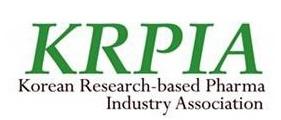Nation should make efforts to upgrade investment attraction further

The Korea Research-based Pharma Industry Association (KRPIA) said that the 31 offshoots of multinational pharmaceutical companies in Korea spent 470.6 billion won ($393.8 million) in R&D last year.
According to a report released by the industry group, the total R&D investment by 28 KRPIA member companies, which responded to the survey for the past three years, was 464.1 billion won last year, a 16 percent increase from the 400 billion won invested in 2017.
The report also showed that the costs of clinical trial drugs increased by 19.3 percent, from 130 billion won in 2017 to 155.4 billion won in 2018.
“As the companies provided the drugs free of charge, the rise in increase in the costs of clinical trial drugs meant that multinational pharmaceutical companies provided new treatment opportunities for more Korean patients,” the group said.
The number of R&D personnel at the 31 Korean branches of the multinational pharma companies continuously increased to 1,717 last year, and the comparable number at the 28 KRPIA member companies rose 8.2 percent from 2017 to 1,678.
The 31 companies conducted 1,486 clinical trials last year, and the 28 actively responding firms carried out 1,192 clinical studies, a similar figure to the previous year’s 1,196. However, the number of phase 1 clinical trials decreased 6 percent in 2018 from 2017.
The report also showed that clinical trials for multinational pharmaceutical firms mainly focused on cancer and rare diseases. The share of cancer- and rare disease-related clinical trials by the 31 global pharma companies totaled 583 cases and 63 cases, respectively, accounting for 49 percent and 5 percent, respectively, of the total.
“The data suggests that global pharmaceutical companies are contributing to increasing early access to new treatment options for cancer and rare disease patients through clinical studies,” the group said.
However, the total number of clinical trials for cancer and rare diseases showed a significant decrease compared to the previous year, it pointed out.
Given the decrease in the accessibility of anti-cancer and rare disease treatments in Korea compared to other advanced nations in recent years, the government needs to come up with institutional and policy considerations concerning new drugs in these areas, KRPIA emphasized.
“In pharmaceutical-led clinical trial protocols in the world, Korea ranked fifth in 2017 (3.51 percent) and sixth in 2018 (3.39 percent),” the group said. “As China has risen from the fourth place (3.7 percent) to the third place (4.66 percent) through regulatory reforms, the numbers imply that Korea needs to make an active effort to maintain the competitive advantage of clinical trials and upgrade its investment attraction.”

